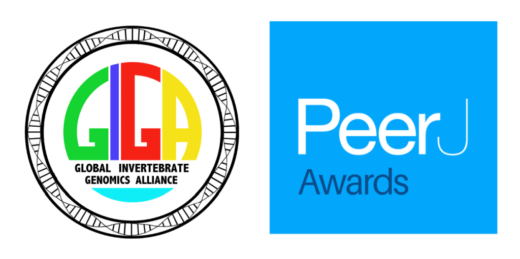We are pleased to announce that we will be hosting the conference output for the Third Global Invertebrate Genomics Alliance Research Conference and Workshop (GIGA III) in a PeerJ Collection. The conference is being held Oct 19-21, 2018 in Curaçao. In addition, PeerJ...
Podcast – Bad Science Part 2: Cogs in the Machine
(Listen to Bad Science Part 1 here) Cogs in the machine PeerJ co-founder Jason Hoyt speaks with Cardiff University psychology professor Chris Chambers in this ongoing series on "Bad Science." Introduction 0:05 – The widening division between science and the public...
Bad Science Part 1: Jason Hoyt speaks with Professor Dorothy Bishop
In this multipart series on bad science, PeerJ co-founder Jason Hoyt speaks with University of Oxford Professor Dorothy Bishop about the pressures to publish great results, p-hacking, registered reports, and open science. 1:50 – When she first learned how pervasive...
BBCC2018 Call for Contributions and Award Announcement
PeerJ is proud to have supported the Bioinformatics and Computational Biology in Campania Conference in recent years. We hosted Collections of their output from 2015 and 2016 and so we are pleased to announce that we will also be hosting the output from BBCC2018 which...
Corals are adapting to survive, but ocean temperatures are rising faster than corals can change.
Today we published "Evidence of acclimatization or adaptation in Hawaiian corals to higher ocean temperatures". In this study, scientists replicate a landmark coral bleaching study from the 1970s to determine changes in coral sea temperature tolerance over time. In...
The 10 most common mistakes when choosing a title for your paper
Months of work go into the preparation and evaluation of your scientific article so that it is ready to be shared far and wide. PeerJ takes a number of deliberative steps to ensure that your research receives a large and global reach. But there are a number of steps...
How often are dairy cows in Austria treated with antibiotics?
The World Health Organization designates some antimicrobial classes to be of the “highest priority critically important” to human health. In a recent paper published in PeerJ - the Journal of Life & Environmental Sciences, researchers looked at the levels of...
Inferential statistics, p-values, and the quest to evaluate our hypotheses
P-values and significance testing have come under increasing scrutiny in scientific research. How accurate are these methods for indicating whether a hypothesis is valid? PeerJ Author Valentin Amrhein looks at the many issues with significance testing, why the p-value...
Announcing the PeerJ Section Editors leading our community-driven editorial reboot
PeerJ Sections cover most of the subjects published in PeerJ Life & Environment. We want Sections to be your community’s home at PeerJ. Sections are community led and exemplify a research community’s shared values, norms and interests. Section Editors provide...
More to butterfly mating than meets the eye: Female butterflies choose mates based on the scent of male pheromones.
How do butterflies choose their mate? Research has largely focused on male visual attraction towards female colour patterns, but a recent study finds there are more signals at play here. Kathy Darragh from the University of Cambridge shares more on the research...









